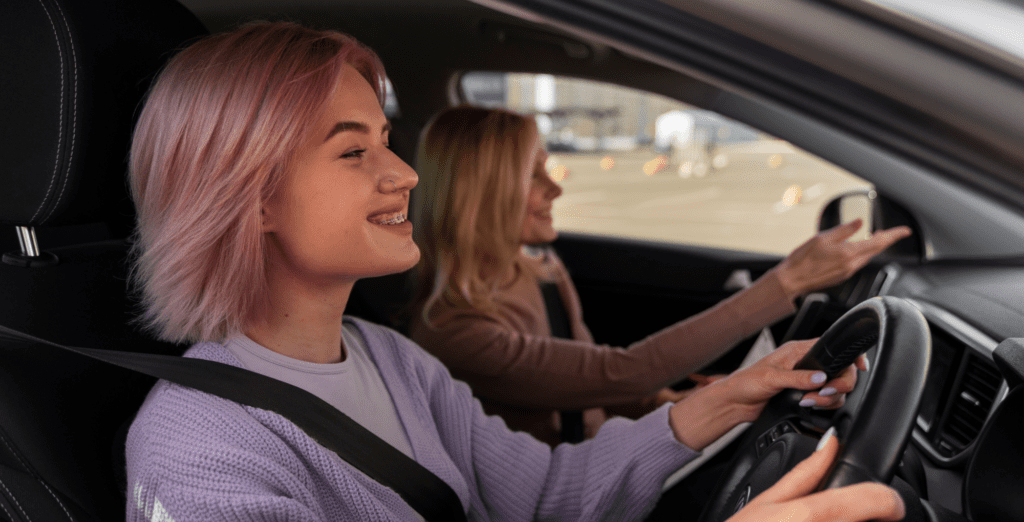
In 2024, the cost of acquiring a driving licence in the UK continues to be a significant investment for many.
Understanding the costs associated with driving lessons can help learners plan effectively and choose the best options according to their needs and budget.
This article provides a comprehensive overview of the costs involved in learning to drive, including the price variations across different regions and the factors that influence these costs.
As well as the cost of driving lessons, learners will need to also pay for:
- Provisional licence
- Theory test
- Practical test
- Car, and insurance
Overview of Driving Lesson Costs
Average Cost of Standard Driving Lessons
The average cost of a driving lesson is around £25-£50 per hour, and the DVSA recommends that learners take around 45 hours of lessons.
This means the total cost of lessons can be around £1,125 to £2,250, but this can vary widely depending on the number of lessons you need.
However, prices can vary significantly based on the location and the driving school’s reputation.
Most driving schools offer packages or bundles that reduce the overall cost per lesson when purchased in bulk, such as blocks of 10 or 20 lessons.
These packages often include additional supports such as theory test preparation and online resources.

Price Variations Across the UK
There is noticeable price variation across different parts of the UK. Generally, driving lessons are more expensive in major cities and particularly in London, where prices can be as high as £50 per hour.
In contrast, in more rural areas or smaller cities like Exeter or Sunderland, prices can be considerably lower, sometimes around £25 to £30 per hour. This variation is largely due to differences in living costs and the availability of driving instructors.
Factors Influencing the Cost of Lessons
Several factors influence the cost of driving lessons. The qualifications and experience of the instructor play a crucial role; highly experienced and well-rated instructors typically charge more.
The type of car used for instruction also affects costs, with newer and specialised vehicles (like electric cars) leading to higher prices.
Additionally, market demand, fuel prices, and the operational costs associated with running a driving school all contribute to the pricing structure.
Types of Driving Lessons and Their Costs
Costs for Beginners vs. Advanced Learners
The costs for beginners versus advanced learners can differ. Beginners may require more lessons overall, often benefiting from discounted packages aimed at new drivers.
In contrast, advanced learners or those preparing for a driving test might opt for fewer lessons, potentially at a premium, focusing on refining specific skills and tackling challenging driving scenarios.
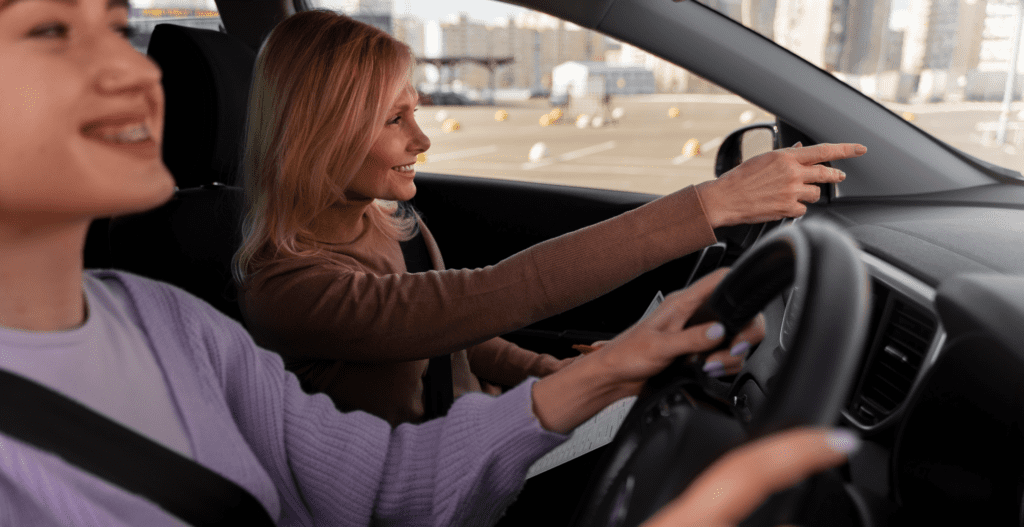
Intensive Courses and Their Pricing
Intensive courses, designed to prepare learners for the driving test in a short time frame, typically span over one to four weeks and are priced differently from standard lessons.
These courses can cost anywhere from £800 to over £3,000, depending on the duration and the inclusion of the test fees.
They are a popular choice for individuals who need to learn to drive quickly and are prepared to commit full-time hours for the duration of the course.
Specialised Driving Instruction (e.g., Automatic, Defensive Driving)
Specialised driving instruction is another area with varying costs. Lessons in an automatic car can sometimes be cheaper than those in a manual car, as learners may require fewer lessons overall due to the simpler driving mechanics.
However, some schools charge the same regardless of the transmission type. Defensive driving courses and other specialised training, such as driving in adverse weather conditions, typically come at a premium due to the additional skills and certifications required by the instructors.
Package Deals and Bulk Discounts
Understanding Package Options
Package options are popular among learner drivers seeking to manage the cost of learning to drive. Driving schools typically offer a variety of packages that bundle a set number of lessons for a discounted rate compared to purchasing individual lessons.
These packages may include not just practical driving sessions but also additional benefits such as free access to online theory test resources or even the inclusion of the practical test fee.

How to Calculate Savings with Bulk Packages
To calculate savings with bulk packages, compare the total cost of individual lessons needed to reach test-readiness against the cost of a package that offers the same number of lessons.
For example, if a single lesson costs £25 and a package of 20 lessons costs £450, the package price per lesson drops to £22.50, saving £2.50 per lesson.
Overall, this can lead to significant savings, particularly for beginners who may need extensive practice.
Comparing Costs Between Single Lessons and Packages
Comparing costs between single lessons and packages is crucial for budget management. Single lessons might offer flexibility, particularly for those who need to schedule lessons around a busy lifestyle or uncertain availability.
However, packages often provide better value and ensure a consistent and comprehensive learning experience, which can be more conducive to progressing towards driving test standards.
Applying for a Provisional Licence
Steps to Apply for a Provisional Licence
The process to apply for a provisional licence is straightforward. The first step is to ensure you meet the minimum age requirement, which is 17 for driving a car.
You can apply for the licence up to three months before your 17th birthday, although it will only become valid when you turn 17.
Applications can be made online at the DVLA website or by completing a D1 application form available at Post Office branches.
Necessary Documents and Eligibility
To apply for a provisional licence, you must provide several necessary documents. These include proof of identity (such as a passport), proof of residence in the UK, and a valid means to pay the application fee.
It’s also necessary to meet the eligibility criteria, which include passing an eyesight test and declaring any medical conditions that might affect your ability to drive safely.
Cost of Acquiring a Provisional Licence
The cost of acquiring a provisional licence is £34 when applying online and £43 if applying through the postal service.
This fee is payable to the DVLA and is a one-time cost for obtaining the licence, which remains valid until the licence holder is 70 years old, provided there are no disqualifications or revocations due to medical or other reasons.
Driving Tests Cost
Cost Breakdown for Theory and Practical Tests
Understanding the cost breakdown for both the theory and practical tests is crucial for anyone preparing to get their driving licence.
In 2024, the cost for the theory test is £23, which includes the multiple-choice questions and the hazard perception test.
The practical driving test costs £62 on weekdays and £75 on weekends, holidays, and during evening hours, reflecting the additional administrative costs associated with these times.
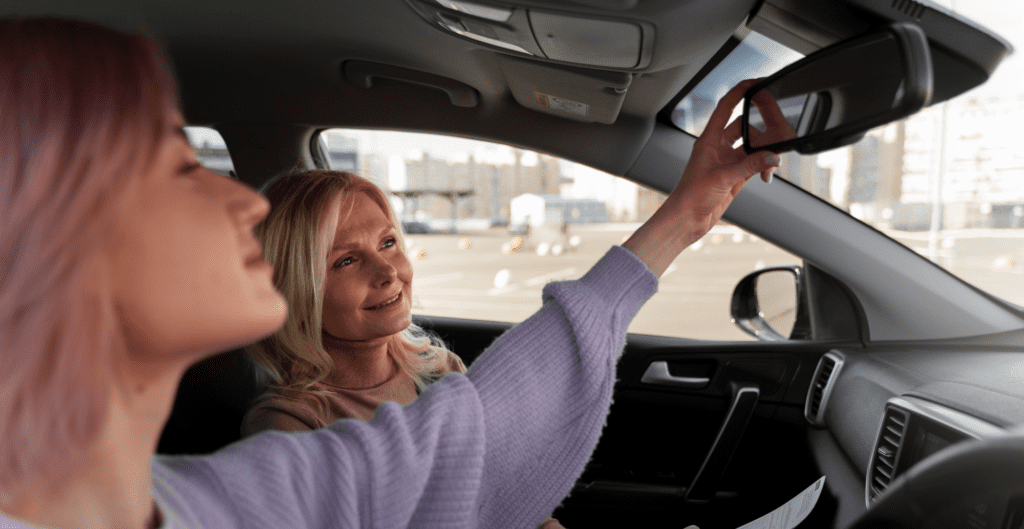
Additional Fees for Rescheduling or Cancelling Tests
It’s important to be aware of additional fees for rescheduling or cancelling tests. If you need to reschedule or cancel your practical driving test, you must do so at least three working days before your booked test to avoid losing your fee.
If cancelled or changed in time, there is no additional cost, but failing to meet this deadline means you will need to pay the full amount again for a new test slot.
Comparison of Test Costs Across Different Regions
There is generally no comparison of test costs across different regions in the UK, as the DVLA standardises these fees nationwide.
However, accessibility to test centres and availability of test slots can vary, potentially influencing how quickly you can book and take your test depending on your location.
Total Cost of Learning to Drive in the UK
Estimated Total Investment from Start to Finish
The estimated total investment from start to finish for learning to drive in the UK can vary widely. A typical learner might require between 20 to 40 hours of professional driving instruction along with the costs of provisional and full licences and tests.
Total expenses, therefore, can range from approximately £1,125 to over £2,250 depending on the number of lessons, location, choice of driving school, and test fees.
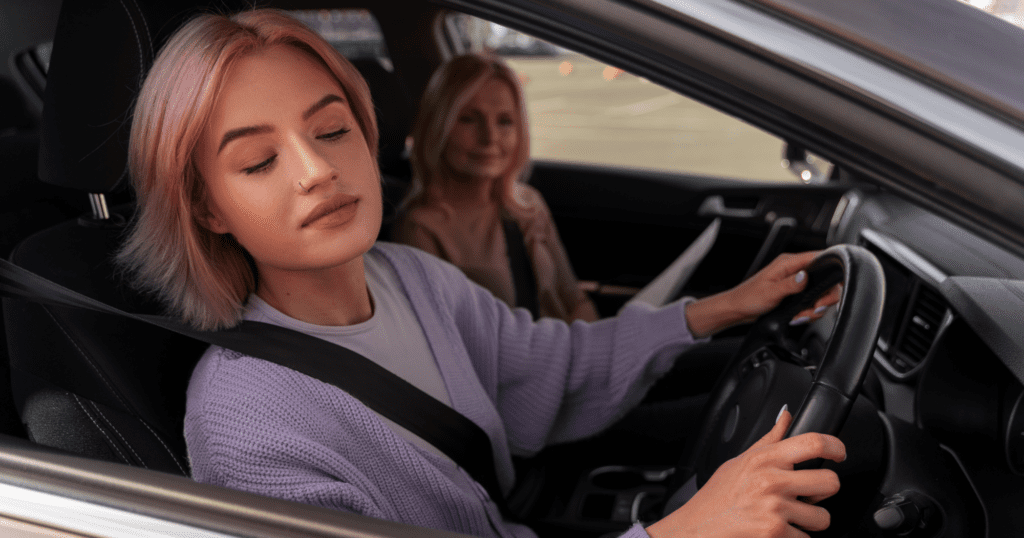
Among the hidden costs to consider are insurance for learner drivers, additional practice lessons, and potentially purchasing learning materials such as books or mobile apps.
Learner driver insurance allows you to practice driving in a family member’s or friend’s car without risking their existing insurance policy.
This type of insurance can be purchased by the day, week, or month and is generally priced higher due to the increased risk of accidents.
Tips for Minimising Total Learning Costs
To minimise total learning costs, consider the following tips:
- Book lessons in bulk to benefit from discounted rates.
- Choose an instructor who offers a comprehensive package including theory test preparation.
- Practice with a qualified friend or family member to reduce the number of professional lessons needed.
- Study extensively for the theory test to avoid the cost of multiple attempts.
- Schedule your practical test when you are fully prepared to avoid the costs associated with retesting.
Additional Costs Involved in Learning to Drive
Provisional Licences and Their Fees
The provisional licence is the first step for anyone learning to drive in the UK. The fee for applying for a provisional licence online is £34, while applying via post costs £43.
This licence allows you to drive on UK roads (except motorways) under supervision and is essential before taking any driving lessons or tests.
Cost of Theory and Practical Tests
The cost of theory and practical tests is an important consideration in the budget for learning to drive. As previously mentioned, the theory test costs £23, while the practical driving test costs £62 during weekdays and £75 for evening, weekend, or holiday appointments. These costs are standard across the UK, regardless of location.
Additional Study Materials and Practice Tests
Investing in additional study materials and practice tests can significantly aid in preparing for both the theory and practical driving tests.
These materials may include books, downloadable resources, and online practice tests. Costs can vary, with some online resources available for free, while comprehensive study packages might cost up to £50.
Investing in these materials can improve your chances of passing the tests on the first try, potentially saving money on retests.
Choosing a Driving School or Instructor
What to Look for in a Driving Instructor
When choosing a driving instructor, it is crucial to consider several factors to ensure the best learning experience.
Look for an instructor who is patient, clear in their instructions, and supportive. They should have a good track record of student pass rates and be flexible in scheduling lessons to suit your timetable.
Additionally, it’s essential to ensure that the instructor’s teaching style matches your learning preferences.
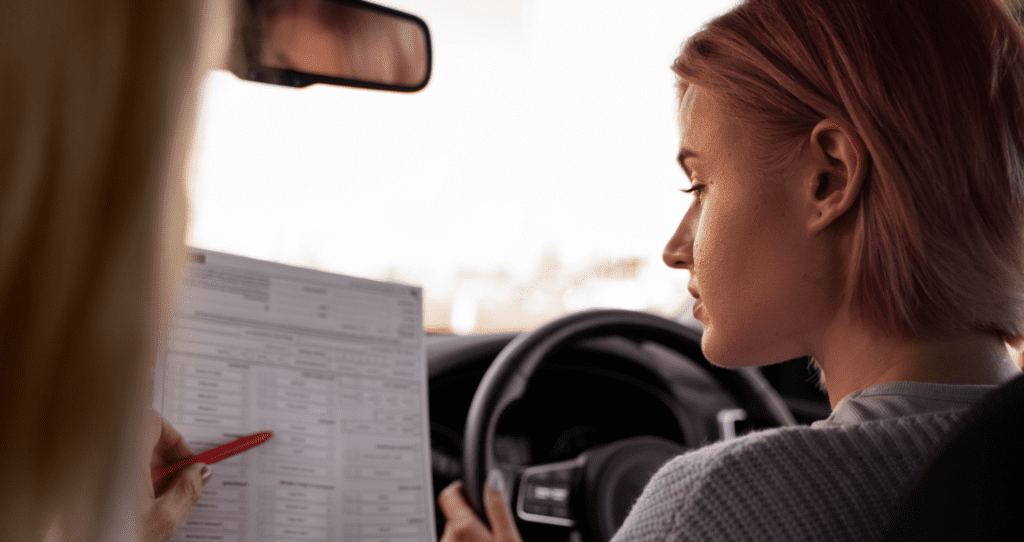
Importance of DVSA (Driver and Vehicle Standards Agency) Approval
The importance of DVSA approval cannot be overstated when selecting a driving school or instructor. DVSA-approved instructors are certified professionals who have met strict standards set by the agency, ensuring high-quality instruction.
Choosing a DVSA-approved instructor guarantees that you are being taught according to the latest driving standards and safety regulations.
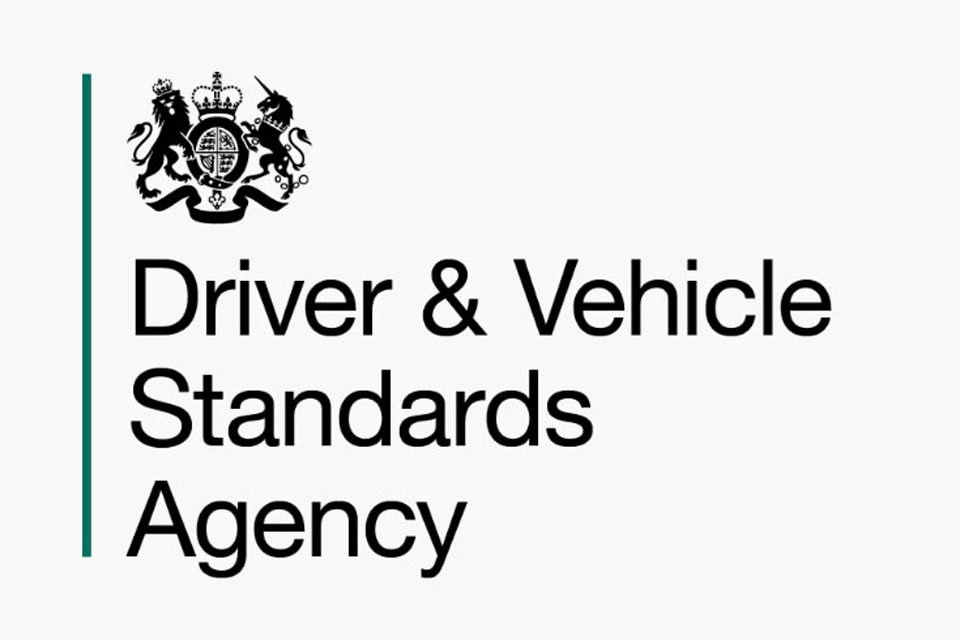
Checking Reviews and Success Rates
Checking reviews and success rates is another critical step in selecting a driving school or instructor. Look for reviews on independent websites, ask for recommendations from friends or family, and check the success rates of the driving schools or instructors.
High pass rates and positive feedback are strong indicators of the quality and effectiveness of the instruction provided.
Funding and Financial Assistance Options
Government Funding and Subsidies for Drivers
While government funding and subsidies for driving lessons are limited, there are some circumstances where you might find financial assistance available.
For example, certain job seekers or individuals receiving specific benefits may be eligible for subsidies as part of employment support programs.
It’s important to check with local job centres or community organisations to see if you qualify for any form of government support aimed at helping individuals gain driving skills, which are often essential for employment.
Private Scholarships and Grants for Driving Lessons
There are also private scholarships and grants available for driving lessons in the UK. These are typically offered by charitable foundations, non-profit organisations, or businesses seeking to invest in community development.
Such opportunities may target specific groups, such as young people, those with disabilities, or individuals from low-income families.
Researching local charities and organisations that offer such support can provide valuable opportunities to fund your driving education.
Budgeting Tips for Aspiring Drivers
Budgeting tips for aspiring drivers include several strategies to manage and minimise the costs associated with learning to drive.
Firstly, it’s advisable to save up for a bulk lesson package, as this often provides the best value. Consider setting aside a small amount of money regularly to fund this goal.
Additionally, comparing prices and services of different driving schools can result in significant savings. Don’t forget to factor in the costs of provisional licences, tests, and additional study materials.
Planning your learning journey during off-peak times can also reduce costs, as many instructors offer lower rates during weekdays or daytime hours when demand is lower.
Frequently asked questions
The cost for a provisional driving licence is £34 if you apply online and £43 if you apply via postal service.
The theory test costs £23, which includes both the multiple-choice questions and the hazard perception test.
The practical driving test costs £62 on weekdays and £75 during evenings, weekends, and bank holidays.
Financial help for driving lessons is limited, but you may find support through local job centres, community programs, or private organisations offering scholarships or grants, especially if you are receiving certain benefits, are a job seeker, or belong to a low-income household.
Look for a DVSA-approved instructor who has a good track record of success rates, positive reviews, and a teaching style that matches your learning preferences. Ensure they are patient, professional, and flexible with lesson scheduling.
Many driving schools offer discounts for bulk lessons or reduced rates for lessons during off-peak hours. Comparing different schools and instructors can also help you find more affordable options.
Beyond lesson and test fees, consider additional costs such as study materials, learner driver insurance, and potentially extra practice lessons. These can all contribute to the overall expense of learning to drive.
Most learner drivers require between 20 to 40 hours of professional driving instruction, depending on their prior experience and personal learning pace.
It can sometimes be slightly cheaper to learn in an automatic car as learners might require fewer lessons. However, this varies by driving school, and some charge the same rate regardless of the car transmission.
Save money by booking lessons in bulk for a discount, practising with a qualified friend or relative to reduce the number of professional lessons needed, and preparing thoroughly for the theory test to avoid paying for multiple test attempts.


